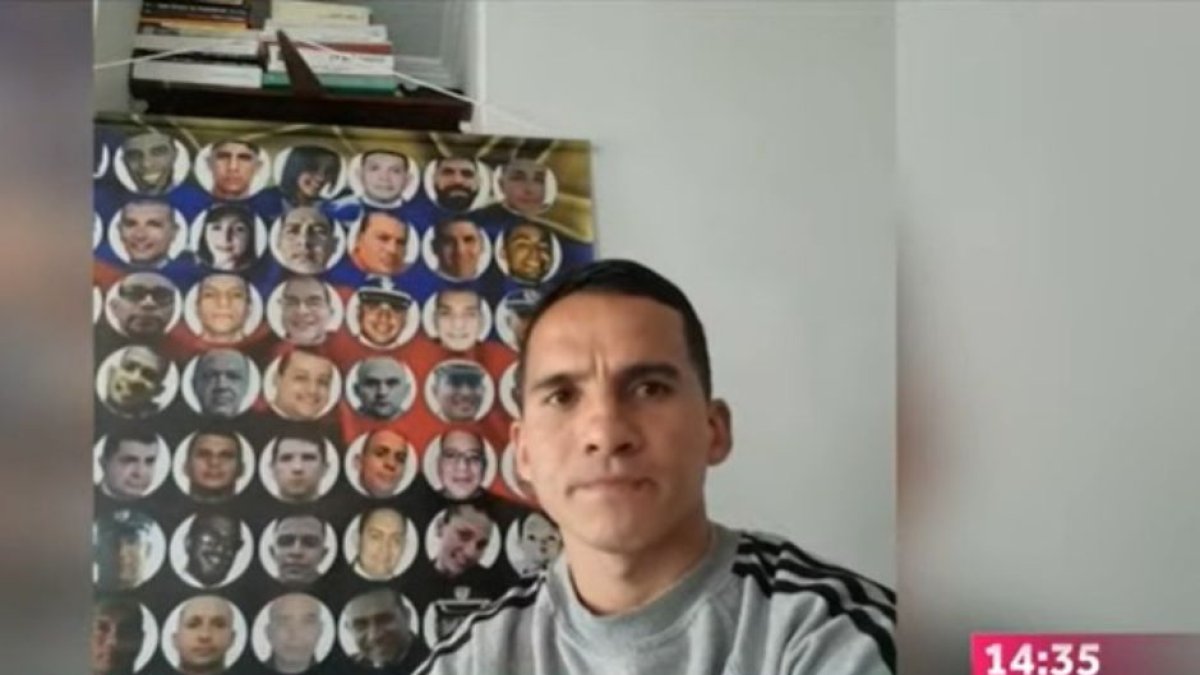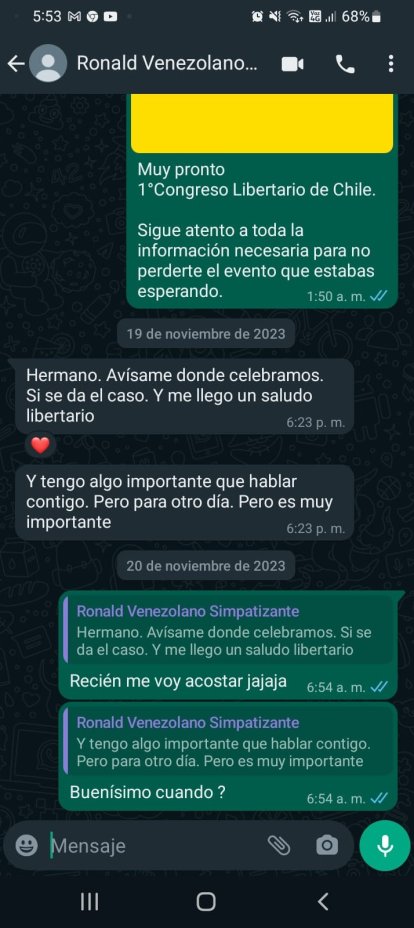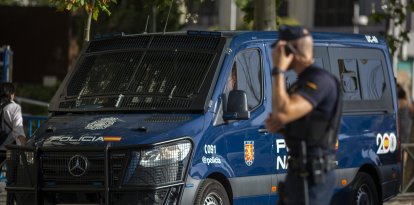The last days of Ronald Ojeda's life: Fighting against Maduro, finishing his memoir and working unskilled jobs
On Monday, the formalization hearing will take place for the only person arrested, a 17-year-old Venezuelan male accused of directly participating in the kidnapping.

Ronald Ojeda (Youtube- CHV Noticias)
Ronald Ojeda escaped from Venezuela to save his life and flee from the torture he was subjected to by the Bolivarian regime in the Ramo Verde prison. After arriving in Chile, the former lieutenant worked several unskilled jobs to support his wife and son. However, he never gave up on his political activism and fighting against the dictatorship in his country, He recently approached the Libertarian Party and took part in events such as the visits of Javier Milei and Nicolás Márquez. He was also finishing his memoir and looking for a publisher to publish them. On Monday, the formalization hearing will take place for the only person arrested, a 17-year-old Venezuelan accused of directly participating in the kidnapping.
"Very focused on his goal"
Since arriving in Chile, he worked in various unskilled jobs that allowed him to make some money to support his family. Ítalo Omegna, president of the Chilean Libertarian Party, exclusively told Voz Media that Ojeda "did Uber, and worked in fast food establishments owned by Venezuelan friends," in addition to working as a dishwasher on occasion. It "was difficult for him, but he gave the impression of being very focused on his goal," according to Omegna.
His goal was to liberate his country, ending the Bolivarian dictatorship: "He was focused on overthrowing the regime, he was working to generate contacts and get support, although he never revealed his plan. In that sense, he seemed to be very cautious." When he met the libertarians, "he participated in those events to make his case known, to explain how the Venezuelan dictatorship operates both inside and outside its borders and requested help to organize resistance against the regime," Omegna recalls.

Screenshot of a message from the national coordinator of the Libertarian Party of Chile with Ronald Ojeda.
As a sign of this caution, Omegna shared with Voz Media the last WhatsApp conversation that he had with Ojeda. It was from November of last year. He told him that had something "very important" to talk about, without going into more details. It seemed he did not want to give more information via cell phone. They never ending up meeting, for various reasons, and they don't know what he wanted to tell them.
During his stay in Chile, Ojeda was very active on social media. He was fighting against the Chavista dictatorship, leading protests such as in November 2022, when he stood in front of the presidential palace with a bag over his head with DGCIM (General Directorate of Military Counterintelligence) printed on it. He was demanding the political prisoners be released. He was also protesting the negotiations that were taking place in Mexico at that time. A year later he would get Gabriel Boric's government to grant him political asylum, something that did not guarantee his safety.
Omegna also stated that Ojeda was finalizing his memoir: "I had intentions of writing a book. I contacted my friend from Editorial Entre Zorros y Erizos and she told her that I wanted to write a book about her testimony."
The Chilean newspaper La Tercera obtained the 185 pages that Ojeda had written. He describes in detail the torture he faced for months while in the Venezuelan prison. He also described how he managed to escape and make it to Chile. However, he made it very clear that "this is not a book; it is a report and a warning." Therefore, "aware that they were after him," he handed them over to his brother Javier, who has asked the Chilean authorities that the family be allowed to identify his body.
His was first kidnapped almost six years ago. On March 25, 2017, Ojeda was guarding a strategic location on the border with Colombia, "an area of vital importance for insurgent, radical groups, led by the FARC and the ELN, linked to drug trafficking, kidnapping, extortion and smuggling," as he recalls in his memoirs. He was summoned to a meeting in Caracas where he met with his superior, Brigadier General Ovidio Delgado Ramírez, to prepare for the meeting. He congratulated him on his work and gave him an envelope with money: "Take it, Ojeda, so you can share it with your family and for your future child. "You did a good job," the former lieutenant wrote.
"Lieutenant, you damned traitor"
However, when he was on his way home to pack his bags, a vehicle stopped on the road and "the second colonel commander of the brigade Marco Tulio Álvarez Reyes, known as Machetico, got out. He opened the door of my vehicle and pointed his service weapon at my head. 'Lieutenant, you damned traitor.'” Next, he was transferred to an abandoned airport where soldiers dressed in black were waiting for him. General Ojeda, who had just congratulated him, handcuffed him.
Accused of participating in a coup against the regime
They accused him of participating in a failed military coup against the regime, and interrogations began. They asked him where he got the money he had just received. They put him on a plane, where the torture began, as reported by La Tercera: "The first thing was a kick to the head." They opened the door of the plane, threatening to push him out. They pepper sprayed him in his face, and then they suffocated him with a rope tied to his neck." Ojeda remembers that based on the questions, they didn't seem to know anything but he remained firm, "I don't know anything," he said.
After arriving in Caracas, the mistreatment did not stop, and he had to suffer in dark and dingy cells. His food (arepas and lentils) was thrown on the floor, without a plate: In addition, from solitary, he heard the torture and screams of other prisoners. He was there for 13 days. His wife gave birth during this time. She never stopped looking for him.
Speaking out against Army corruption
Ojeda spoke out against the corruption in the Venezuelan army, as well as the indoctrination that recruits receive to make them loyal to the party and not to the country or its citizens:
Within corruption, there was a double trend. On the one hand, irregular payments to officials, who followed "a line of command. The bosses who receive the money in exchange must make the respective payments to their superior bosses, and thus, an entire well-planned scheme was nourished that cannot be altered." On the other hand, the former lieutenant spoke about "fake shooting exercises. The ammunition disappeared; it went to unofficial groups of the FARC-ELN.”
Freedom above all
He also wrote about how he managed to escape and make it to Chile where he continued to fight for his country. From the beginning of his story, he used phrases very similar to those that appeared in his last post on X, always focused on freedom:

























